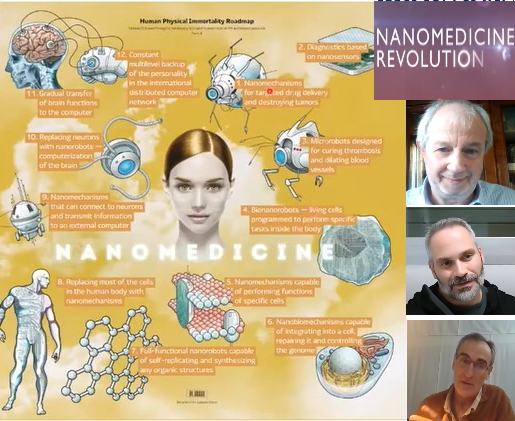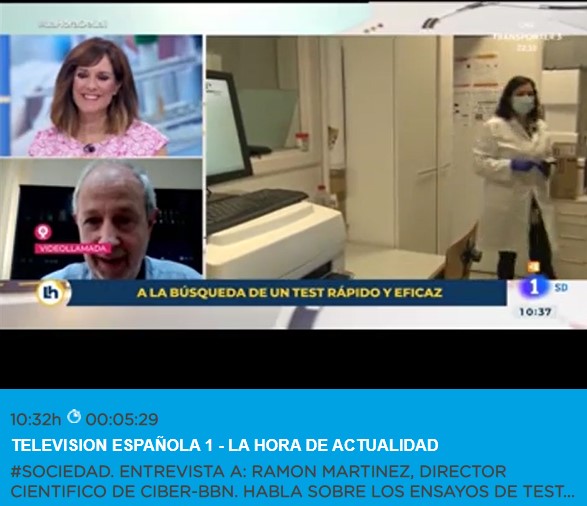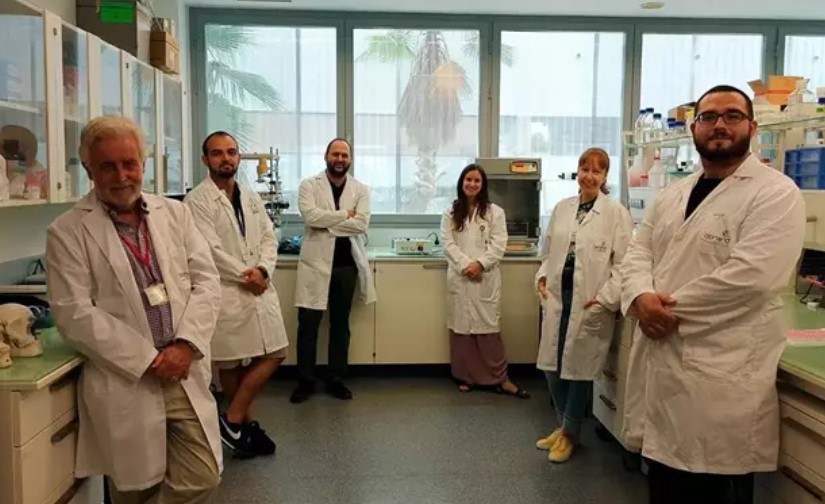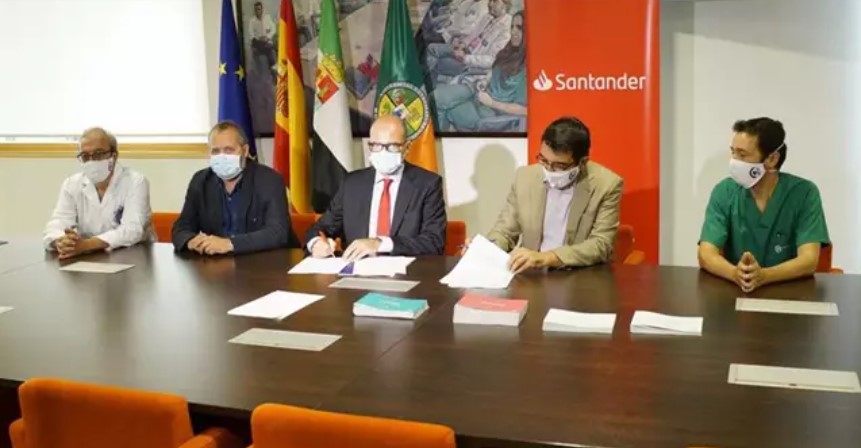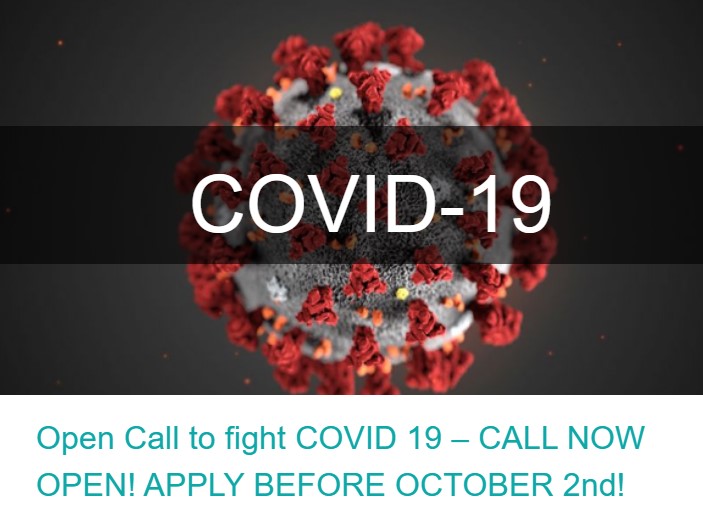New COVID-19 Diagnostic System Ready for Trials in Clinical Samples
The new system for the rapid, economic and efficient diagnosis of COVID-19 devised by the Universitat Politècnica de València (UPV), the IIS La Fe and the CIBER-BBN is now ready for trials on clinical samples. Since the pandemic broke out, the group of Professor Ramón Martínez Máñez, a researcher at the IDM Institute of the UPV and scientific director of the CIBER-BBN and NANBIOSIS U26 RNM for Biomedical Applications I, has been working on an alternative for the diagnosis of COVID-19, based on nanoporous films. These materials are capable of storing an indicator that is released only in the presence of the SARS-CoV-2 virus thanks to a system of molecular gates. And they do it very quickly, reliably and easily.
The material has already demonstrated its ability to detect the Spike protein present in SARS-CoV-2 and also its function for the detection of a model virus that expresses the aforementioned protein and that has been implemented by the Viral Biology group of the I2SysBio, center mixed of the University of Valencia and the Higher Council for Scientific Research (CSIC), led by Dr. Ron Geller.
“These advances represent another step towards obtaining the final device and confirming that the system is capable of recognizing virus particles”, highlights Ramón Martínez Máñez, director of NANBIOSIS U26 NMR for Biomedical Applications I.
The UPV team of researchers will carry out the clinical validation of the device in collaboration with Dr. Javier Pemán and Dr. Mª Ángeles Tormo, from the Serious Infection Research Group at IIS La Fe, by Dr. María Dolores Gómez, Head of the Molecular Microbiology Unit of the Microbiology Service of the Hospital Universitari i Politècnic La Fe and by Drs. Miguel Salavert and Eva Calabuig, of the Infectious Diseases Unit of the aforementioned hospital.
Once its sensitivity for the diagnosis of COVID-19 has been verified, it is planned to develop a final kit and obtain the CE marking, which will allow its commercialization. “We hope that this process will be carried out as quickly as possible and that it may be on the market to provide a new tool in the face of the pandemic that we are suffering,” says Dr. Elena Aznar, a researcher at CIBER-BBN.
Among the advantages of the device devised by the researchers of the UPV, UV, CSIC, IIS La Fe and CIBER-BBN, I would highlight its ease of use, being able to be used for the diagnosis of COVID-19 in places with limited infrastructure. Furthermore, it does not require highly qualified personnel and the sample does not have to be analyzed in specialized laboratories.
“In addition, the POC technologies on which it is based are global detection tools to monitor for possible new outbreaks in the future, so that once it is ready for use, it will contribute to the rapid implementation of containment measures”, he highlights Ramón Martínez Máñez.
The development of this project is financed by funds from the Covid-19 Donations of the Generalitat Valenciana, made by people and companies during 2020 to contribute to the fight against the pandemic. The solidarity of the Valencian citizenship materialized in donations of about 1 million euros, destined entirely to research projects of excellence against the virus such as the one led by Professor Martínez Máñez, managed by the Ministry of Innovation, Universities, Science and Society Digital.
The project also has the support of the Supera COVID-19 Fund, promoted by Crue Universidades Españolas, Banco Santander -through Santander Universidades- and the CSIC. In addition, the I2SysBio Viral Biology group (UV-CSIC) received funding from the Valencian Innovation Agency (AVI) for the implementation of the model virus.
Related news:
COVID-19 detection system: a fast, cheap and easy to use alternative to PCR.










